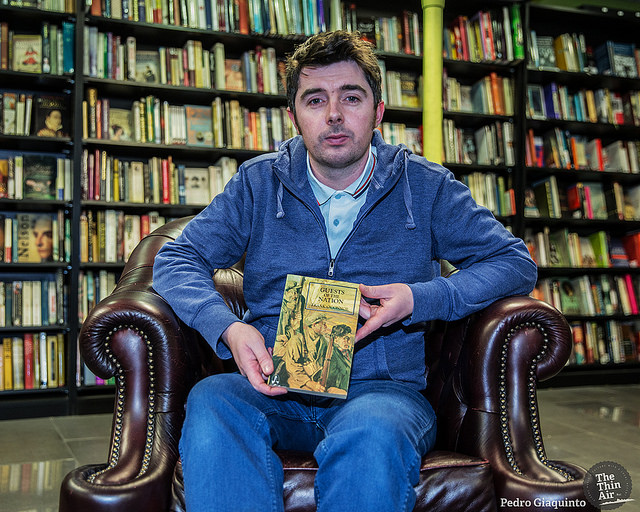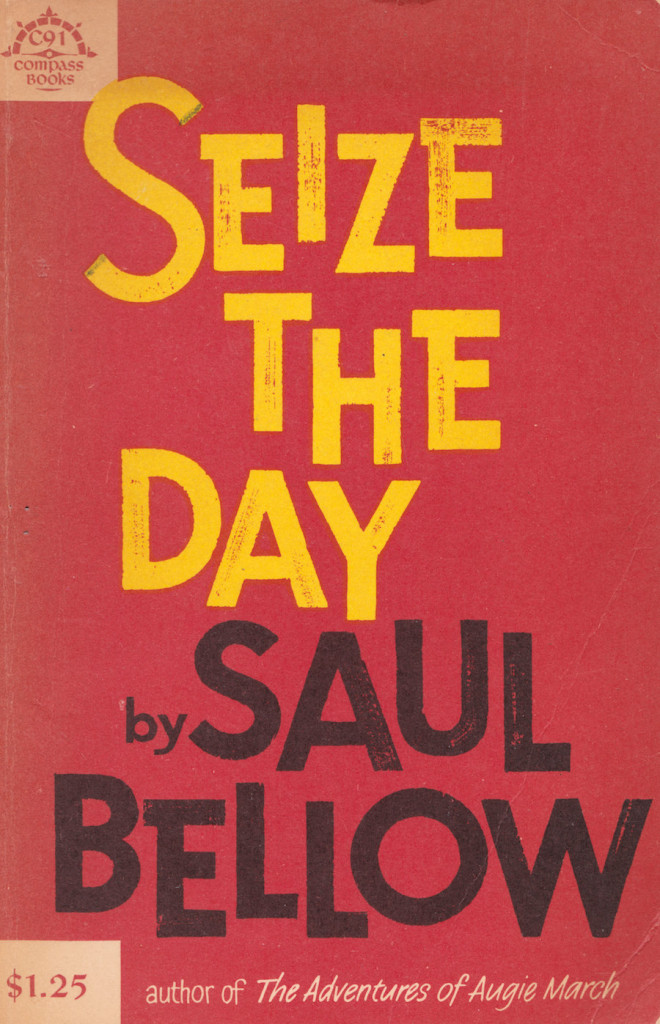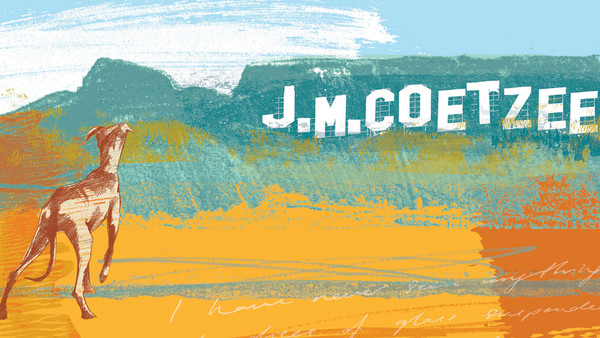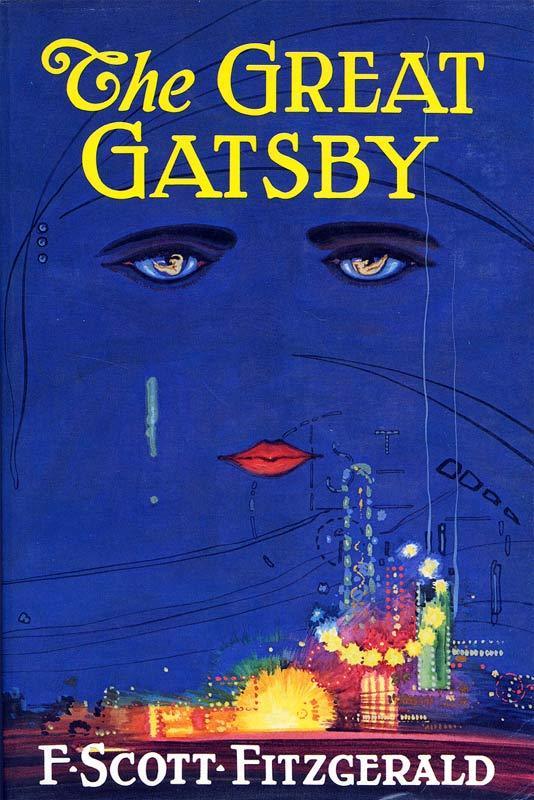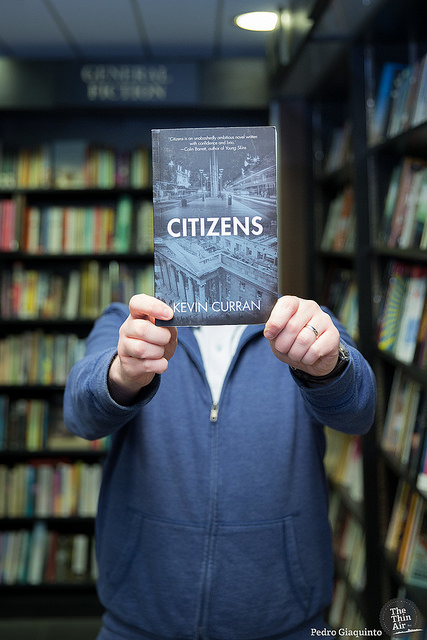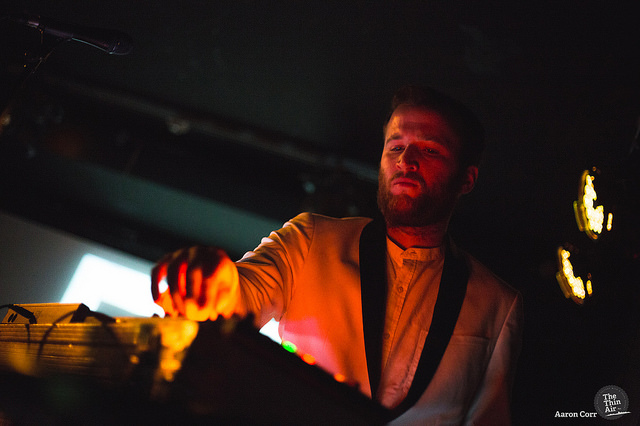In this installment of Bookmark, Dublin author Kevin Curran selects and talks about some of his favourite novels, featuring the likes of Saul Bellow, Don DeLillo and F Scott Fitzgerald. Curran has just recently published his second novel Citizens. Photos by Pedro Giaquinto.
James Kelman – A Disaffection
A brilliant, if under-appreciated writer brings us a ground-breaking use of vernacular language that would later be made famous by Irvine Welsh. Not as brash as Welsh, but more gritty and stylistically accomplished, A Disaffection is a powerful book about twenty-something despair and isolation in a world that doesn’t care.
Saul Bellow – Seize the Day
It’s only about 120 pages long, but Bellow somehow manages – like most of his short stories – to fit the essence of a life fully lived up to the opening page, and leaves us, after our short read, wanting to know more about our lead character. Some would argue Herzog is better – but for scope and brevity, such a focus and lightness of touch, Seize the Day is a masterclass in writing.
Eimer McBride – A Girl is a Half-Formed Thing
Although the subject matter for the opening 50 pages is incredibly clichéd – I gave up on counting how many times ‘God’ or ‘Soul’ is used – this is a book, once you get into the language, that knocks you off your feet. Of course there are echoes of the early moderninst writers, but what McBride manages to do is give you something unique and special in a vital and engaging way. A brilliant accomplishment.
JM Coetzee – Disgrace
A tight three act structure, with the rising action occurring at the end of act 2, this book deals brilliantly with themes of racism and immorality. I’ve read it a few times at this stage just to see how he glides from sentence to sentence and paragraph to paragraph with such succinct language and ease of movement.
Rachel Kushner – The Flamethrowers
The second novel from a really exciting American writer. Politics, Art, motorcycles, New York, History. A thrilling ride from start to finish.
Don DeLillo – Libra
Redefines what the novel can do. Mixes fact and fiction to bring together this amazing piece of work that follows the fictional Lee Harvey Oswald from America to Russia and back to that infamous book depository in Dallas, Texas. Even though you obviously know what’s going to happen, DeLillo somehow manages to ramp up the tension leading up to the point of climax. And then we’re left with the rantings of Oswald’s mother. Genius.
John McGahern – The Pornographer
It seems modern readers or critics like to use McGahern as a reference for any contemporary writer who sets his stories in the countryside, but McGahern’s mid-career works – including many short stories – were set in Dublin. This book is fearless and brave in its portrayal of a character many would feel no connection with and, considering the time of writing, it’s political and unapologetic in tackling controversial subject matter.
Christine Dwyer-Hickey – Last Train from Liguria
Moves seamlessly from Italy in the 1930s to contemporary Dublin. Brilliantly creates the essence of Italy before and then during the rise of Mussolini. A brilliantly paced work of literary fiction that is incredibly ambitious.
F Scott Fitzgerald – The Great Gatsby
The more I read it, the more I find, and believe me, I’ve read it many times. So much has been said about it, so I won’t say anymore. I was lucky enough to sit in on a class with Claire Keegan back in college and she recommended it. It was special on my first reading when I was twenty, and remains special.
Frank O’Connor – Guests of the Nation
The opening five or six stories in this collection are an unrivalled collection of political writing that have yet to be matched. O’Connor engages with the politics of the time, the War of Independence and the Civil War with a clear, concise vision which still rings true even today. I’ve read and reread certain stories over and over since I first encountered the book in my early twenties.

